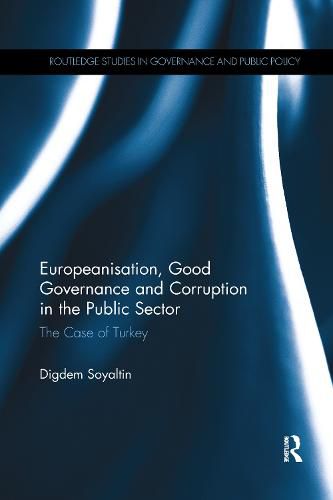Readings Newsletter
Become a Readings Member to make your shopping experience even easier.
Sign in or sign up for free!
You’re not far away from qualifying for FREE standard shipping within Australia
You’ve qualified for FREE standard shipping within Australia
The cart is loading…






When and to what extent external actors, especially the EU, contribute to induce legal and administrative changes and help domestic authorities address the disconnect between good governance standards and corrupt practices? Comparing external promotion of anti-corruption norms and provisions in civil administration, public finance management and public procurement in Turkey this book identifies the domestic conditions under which external actors can affect real-world outcomes. Providing a comprehensive, empirical account of Turkey’s fight against corruption, the book’s cross-sectoral analysis explores the power relations between major political actors and bureaucratic state elites, and examines how structural administrative factors filter external pressure for anti-corruption reforms and determine the prospects for institutional change in the Turkish public sector. This welcome addition to literature on Europeanisation and external good governance promotion makes an important contribution to the academic and policy debate regarding the politics of anti-corruption reforms in Turkey.
$9.00 standard shipping within Australia
FREE standard shipping within Australia for orders over $100.00
Express & International shipping calculated at checkout
Stock availability can be subject to change without notice. We recommend calling the shop or contacting our online team to check availability of low stock items. Please see our Shopping Online page for more details.
When and to what extent external actors, especially the EU, contribute to induce legal and administrative changes and help domestic authorities address the disconnect between good governance standards and corrupt practices? Comparing external promotion of anti-corruption norms and provisions in civil administration, public finance management and public procurement in Turkey this book identifies the domestic conditions under which external actors can affect real-world outcomes. Providing a comprehensive, empirical account of Turkey’s fight against corruption, the book’s cross-sectoral analysis explores the power relations between major political actors and bureaucratic state elites, and examines how structural administrative factors filter external pressure for anti-corruption reforms and determine the prospects for institutional change in the Turkish public sector. This welcome addition to literature on Europeanisation and external good governance promotion makes an important contribution to the academic and policy debate regarding the politics of anti-corruption reforms in Turkey.